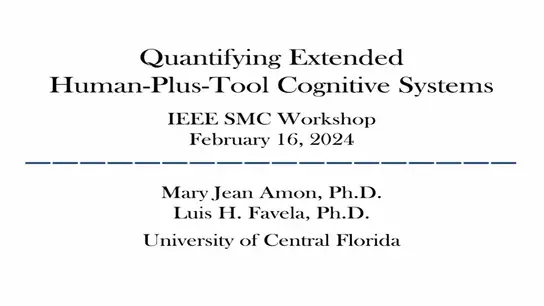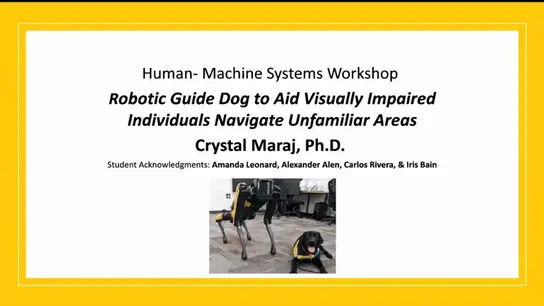-
Members: FreeSMCS
IEEE Members: $11.00
Non-members: $15.00Length: 00:22:53
16 Feb 2024
Interaction-Centered Design: Frontier of Human-Autonomy Teaming
Dr. Ming Hou, Senior Defence Scientist with Defence Research and Development, Department of National Defence, Canada
Dr. Hou is an IEEE Fellow, a Senior Scientist, and the Principal Authority Human-Technology Interactions within the Department of National Defence (DND), Canada. He is responsible for delivering cutting-edge technological solutions, science-based advice, and evidence-based policy recommendations on AI and Autonomy science, technology, and innovation strategies to senior decision makers within DND, the Canadian Armed Forces, and their national and international partner organizations including the United Nations. As the Canadian National Leader in human-AI/autonomy teaming, he directs the Canadian innovation ecosystems on defence R&D programs to support Canadian major acquisition projects and large-scale live, virtual, and constructive international joint exercises. As the Co-Chair of an international Human Factors Specialist Committee, he leads the development of international standards for the integration of unmanned aircraft systems into the civilian airspaces. Dr. Hou is the recipient of the most prestigious DND Science and Technology Excellence Award in 2020 and the President’s Achievement Award of the Professional Institute of the Public Service of Canada in 2021. He is an Adjunct Professor at the University of Toronto and University of Calgary. Dr. Hou is the General Chair of the 2024 IEEE International Conference on Human-Machine Systems and International Defence Excellence and Security Symposium.
Abstract:
The effective human-machine teaming is challenged by the lack of understanding of human-machine interaction issues and appropriate design methodologies for mission/safety-critical systems. Limitations and strengths of human and artificial intelligence (AI) must be well understood first before designing, developing, and employing AI-enabled human-machine systems. It is not only about the safety of these systems, but more importantly human lives and mission success. A systematic and structured framework for design, develop, verify, validate, and regulate disruptive technologies is critical to the entire life cycle of these emerging systems. This talk reviews the evolution of design strategy of intelligent systems, presents the state-of-the-art design methodologies to address the interaction challenges for developing and deploying responsible AI technologies and thus effective human-AI teaming. A technological solution of trustworthy, collaborative, effective, and responsible human-AI teaming for decision-making in weapon engagement following international laws and rules of engagement provides a best practice example for all stakeholders who are interested in building and using 21st century human-AI symbiosis technologies.


